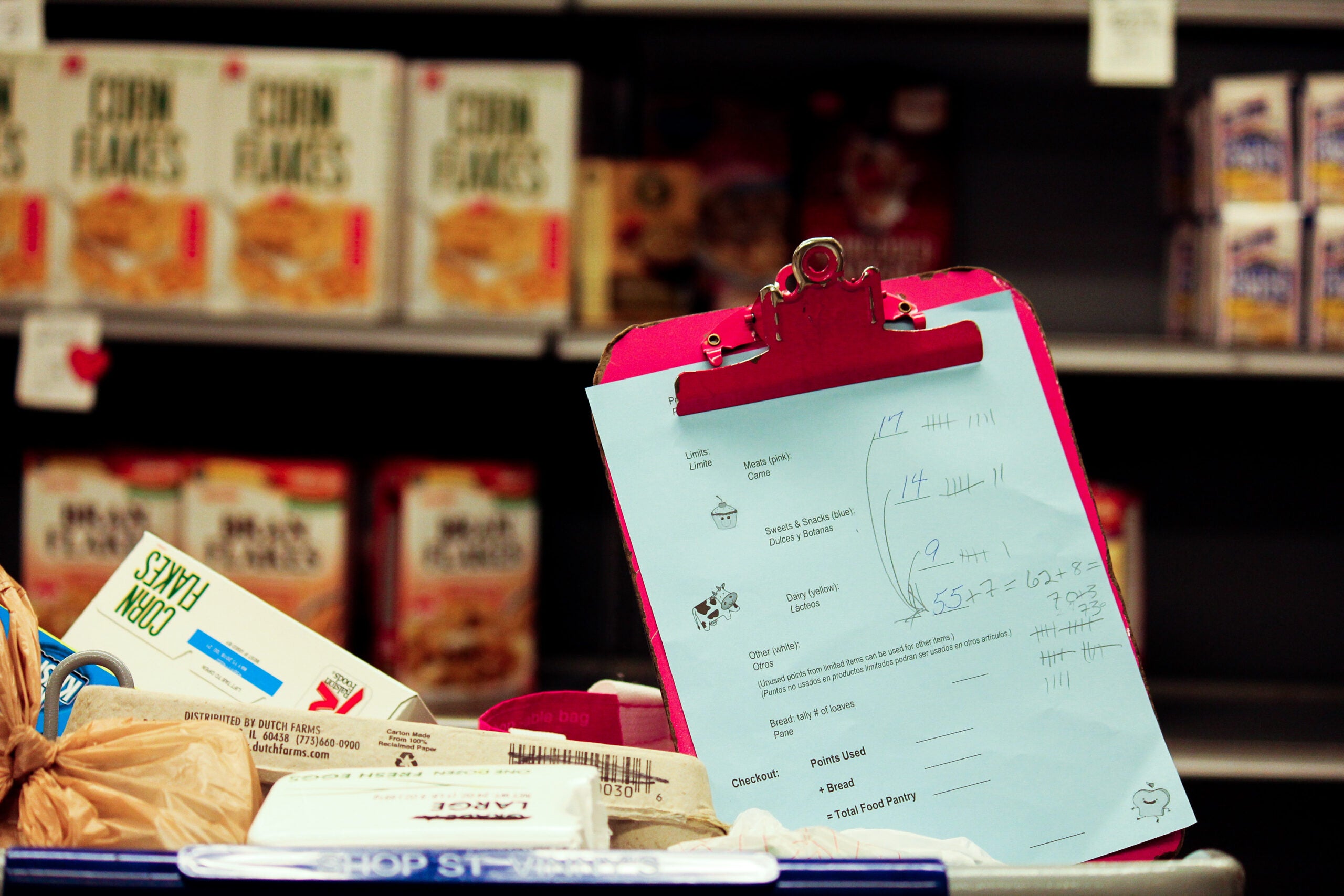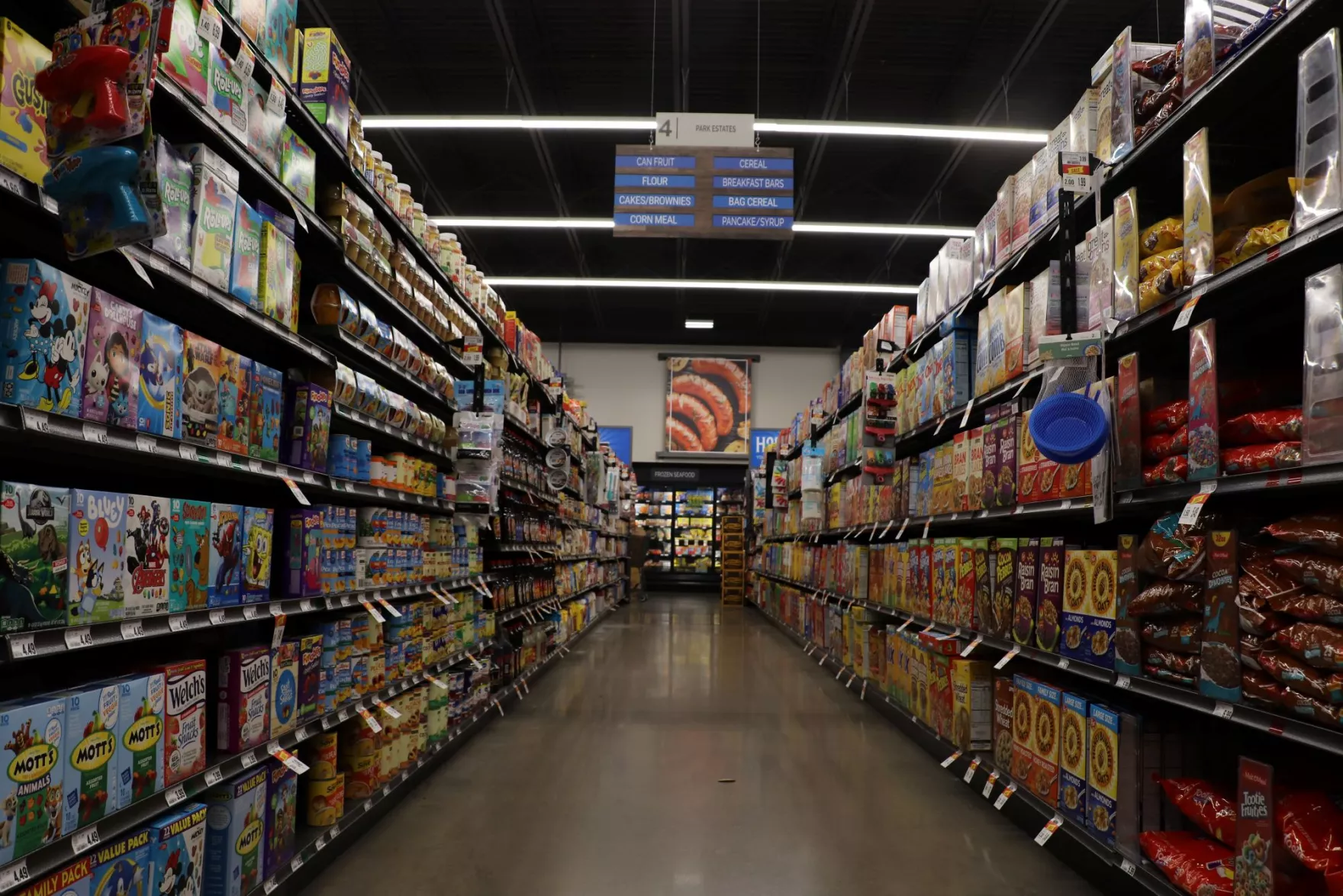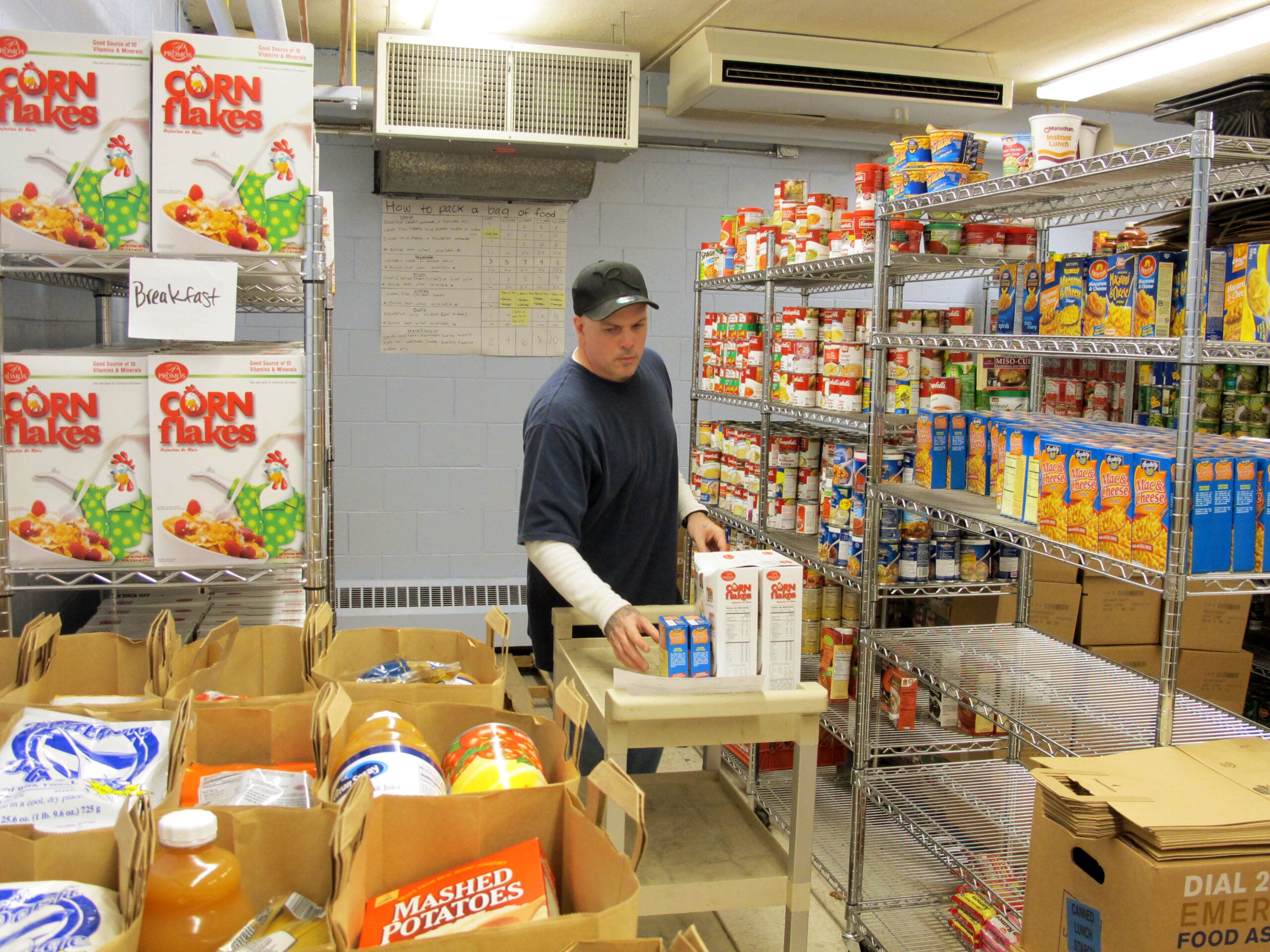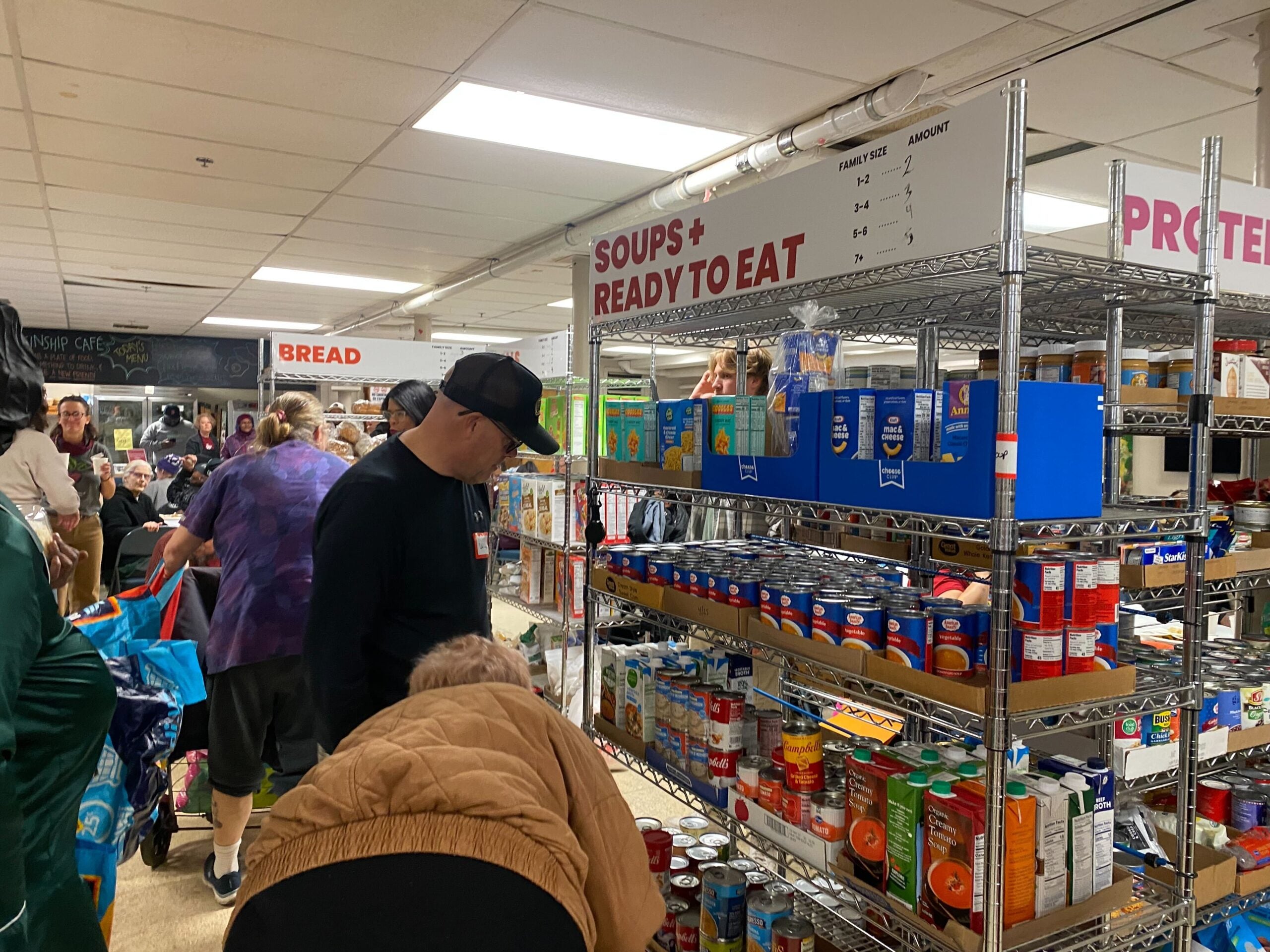Hundreds of thousands of low-income Wisconsinites will soon see a drop in their food assistance payments, leaving food banks bracing for surge in demand.
During the COVID-19 pandemic, Wisconsinites participating in the FoodShare assistance program were eligible for extra funding from the federal government of at least $95 a month on top of their regular benefits.
But, following a vote from Congress in December, states can no longer request the extra allotments. That means the additional pandemic-related payments will be expiring in Wisconsin effective March 1.
News with a little more humanity
WPR’s “Wisconsin Today” newsletter keeps you connected to the state you love without feeling overwhelmed. No paywall. No agenda. No corporate filter.
Michelle Orge, who leads the Second Harvest Foodbank of South Wisconsin, says the drop-off in benefits is coming at a particularly difficult time, as families struggle with rising food prices.
“This is not good news for anyone, and these are dollars that are also spent at local businesses and grocery stores, farmers markets,” she said. “We’re not sure what the full impact is going to be, but it’s already on top of a lot of folks who’ve had to increase support to folks who are struggling.”
In recent months, the Madison-based River Food Pantry has already seen a spike in need. The organization used to serve about 2,000 people every week, a number that’s now up to more than 2,500 people, according to Director of Operations Helen Osborn-Senatus.
Obsurn-Senatus expects those figures could rise even further once the FoodShare changes take effect.
“We are working to make sure that our inventory of food is stocked because we are anticipating an increase in the number of households that we serve each week,” she said.
Nearly 400,000 Wisconsin households participated in FoodShare as of December 2022, and the average household got less than $300 that month, according to state health department data. The last round of extra FoodShare benefits should hit QUEST cards Feb. 19, according to the state. After that, only regular benefits will continue. Money left over on the cards will roll over from month to month.
Meanwhile, Ogre and other food bank leaders are working with pantries to warn Wisconsinites of the impending reduction. She says financial hardship hasn’t gone away even though the pandemic’s waned.
“We’ve got inflation, we’ve got the end of eviction moratoriums,” she said. “Food insecurity was not a new thing during the pandemic. It’s just gotten worse.”
People can call 2-1-1 for help locating a local food pantry. State health officials are also urging those in need to check if they’re eligible for other types of food-related benefits, like the Emergency Food Assistance or Women, Infants, and Children programs.
Wisconsin Public Radio, © Copyright 2026, Board of Regents of the University of Wisconsin System and Wisconsin Educational Communications Board.





